Publications
Articles, publications, books, tools and multimedia features from the U.S. Institute of Peace provide the latest news, analysis, research findings, practitioner guides and reports, all related to the conflict zones and issues that are at the center of the Institute’s work to prevent and reduce violent conflict.
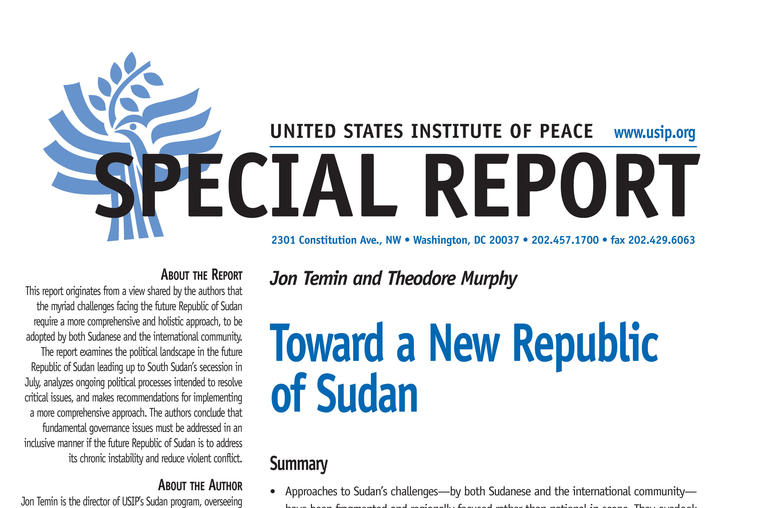
Toward a New Republic of Sudan
The exclusionary governance that led South Sudan to secede from the rest of Sudan continues to bedevil the government of the new Republic of Sudan to the north. Both the July secession and the Arab Spring could provide the impetus the ruling party needs to lead national governance reforms and to engage its diverse citizenry in making a new constitution.
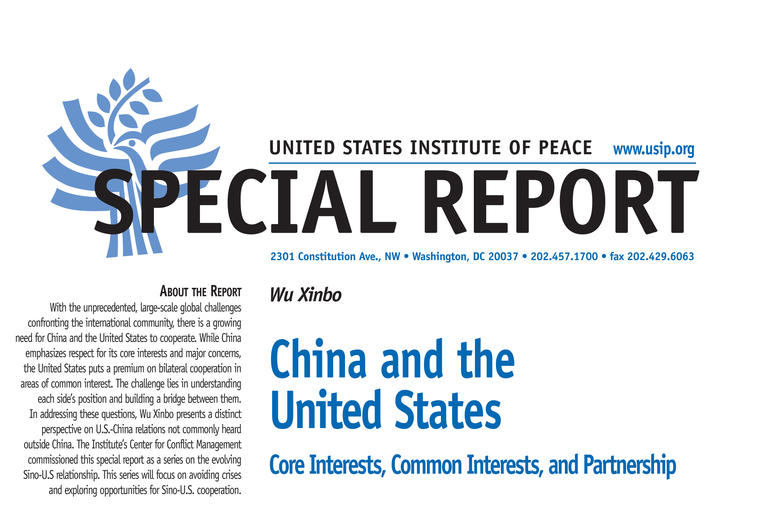
China and the United States
While China continues to call for US respect of its core interests as a means toward greater cooperation on the Korean Peninsula and global climate change, the United States prefers an immediate focus on cooperating on those common concerns. A leading Chinese scholar examines how these differences can be bridged to build a genuine partnership.
Libyan Forces Use Rape as Weapon of War, Experts Say
While opposition fighters struggle to tip the balance against Libyan leader Col. Muammar al-Qaddafi’s forces, a growing number of women living in rebel strongholds are allegedly being raped by members of the Libyan military.
Iraq's al-Sadr Movement
USIP’s Elie Abouaoun, based in the Institute’s Baghdad office, discusses the al-Sadr movement – and why it once again stands to be a destabilizing force in Iraq and region.
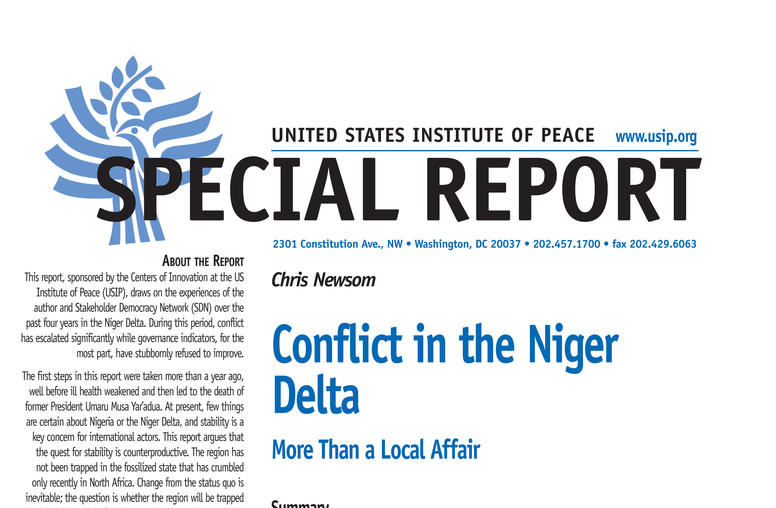
Conflict in the Niger Delta
This report, sponsored by the Centers of Innovation at the US Institute of Peace (USIP), draws on the experiences of the author and Stakeholder Democracy Network (SDN) over the past four years in the Niger Delta. During this period, conflict has escalated significantly while governance indicators, for the most part, have stubbornly refused to improve.
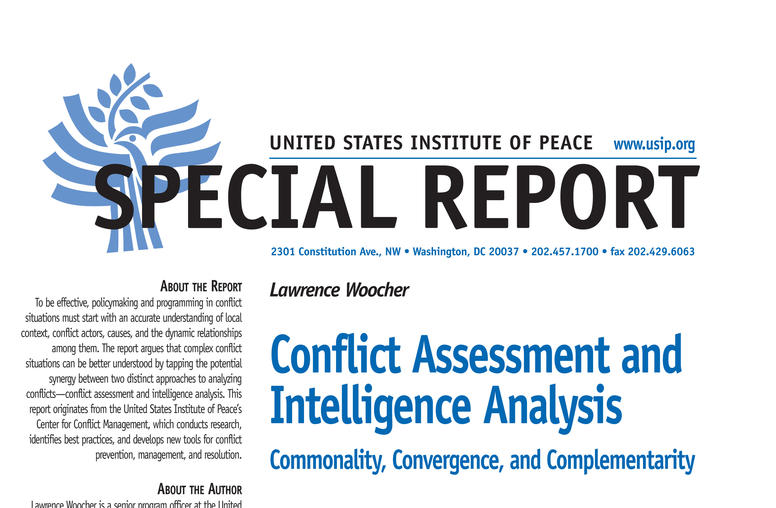
Conflict Assessment and Intelligence Analysis
To be effective, policymaking and programming in conflict situations must start with an accurate understanding of local context, conflict actors, causes, and the dynamic relationships among them. The report argues that complex conflict situations can be better understood by tapping the potential synergy between two distinct approaches to analyzing conflicts—conflict assessment and intelligence analysis. This report originates from the United States Institute of Peace’s Center for Conflict Man...
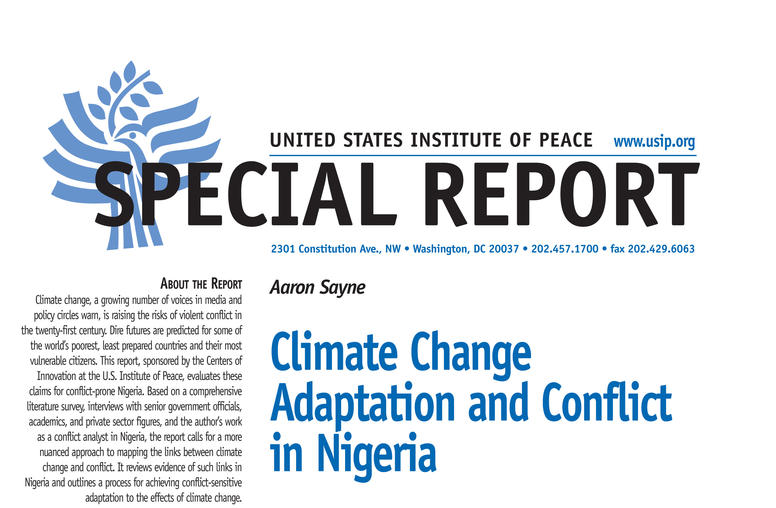
Climate Change Adaptation and Conflict in Nigeria
Climate change, a growing number of voices in media and policy circles warn, is raising the risks of violent conflict in the twenty-first century. Dire futures are predicted for some of the world’s poorest, least prepared countries and their most vulnerable citizens. This report, sponsored by the Centers of Innovation at the U.S. Institute of Peace, evaluates these claims for conflict-prone Nigeria.
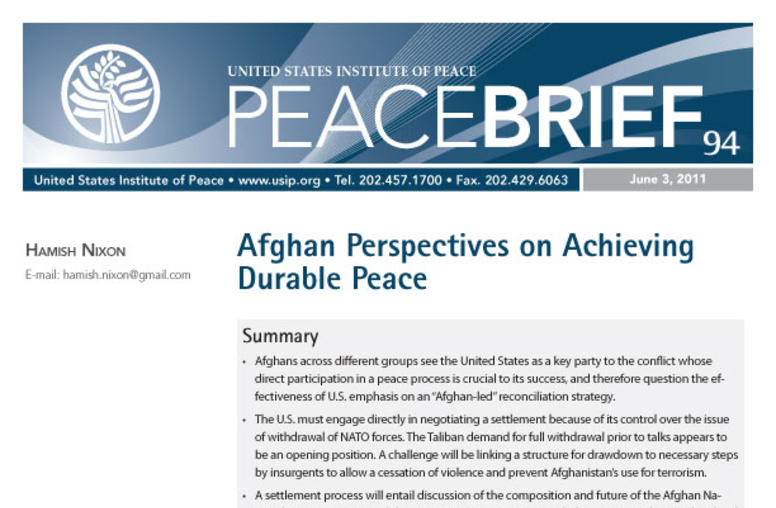
Afghan Perspectives on Achieving Durable Peace
This brief outlines key findings from the first phase of research on Afghan stakeholder views on the conflict. The author worked in Afghanistan for the World Bank and the Afghanistan Research and Evaluation Unit from 2005-2010, and has researched governance and peace processes in Southeast Asia, Central America and Afghanistan.
Laws of War
An American Red Cross survey released this spring shows that 59 percent of American youth believe there are times when it is “acceptable” to torture the enemy. And only one in five American youth is familiar with the Geneva Conventions, last revised in 1949, that define the way civilians and military personnel are to be treated in war.
USIP's Afghan Rule of Law at Work: Strengthening Long-Term Security
USIP was among the first organizations to focus on law and justice issues in Afghanistan after the September 11 attacks and the U.S.-led campaign against the Taliban and al-Qaida in 2001. Since 2002, USIP has been studying traditional dispute resolution in the country.